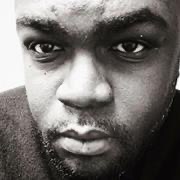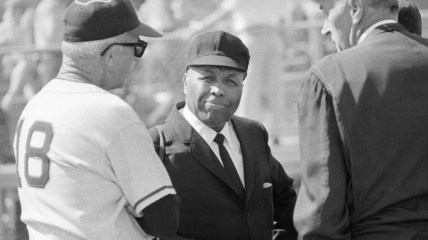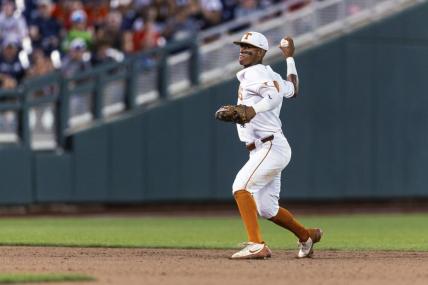‘The League’ is a reminder that baseball was Black America’s first love
OPINION: A new documentary about the Negro Leagues celebrates the beauty and style of Black baseball and acknowledges what we lost when the major leagues integrated.

Editor’s note: The following article is an op-ed, and the views expressed are the author’s own. Read more opinions on theGrio.
“The League,” a new documentary from Sam Pollard, a prolific and award-winning filmmaker, tells the story of the Negro Leagues from the perspective of the guys who played it.
The film makes me think of James Butts, my grandfather.
As a kid, my summers were spent in Idabel, Oklahoma. My grandfather and I would throw a baseball back and forth as he told me stories of traveling hours to see Willard Brown and Satchel Paige play for the Kansas City Monarchs. He told me that the style of play in the Negro Leagues was much different from the all-white majors. Paige, a slender 6-foot-4 pitcher, would lift his front leg high into the sky, delay his windup for a split second and then throw the ball with incredible velocity and pinpoint accuracy. He was also known for calling in his outfielders and telling his infielders to sit down before striking out the side.
I loved hearing those stories, but it wasn’t until I saw Pollard’s documentary that I was truly able to grasp the brilliance of Black baseball. In “The League,” the filmmaker shows the joy that was on display in the Negro Leagues before the major leagues were integrated, but he also shows the difficulties those athletes faced.
Players were not paid much in the Negro Leagues, and the film shows why they wanted a chance to play in the “big leagues” and make big league money. It is clear Black ballplayers had as much, if not more, talent as those white players in the majors, and they wanted a chance to shine on that stage. The desire to integrate is made clear — as are the tradeoffs for that chance.
This film drives home the fact that baseball — not football or basketball — was Black America’s first love. Yet, it also shows how we got to where we are today with Black-American participation in the sport at an all-time low.
What I noticed was not commented on, but it was a clear subtext to much of the film. There was a beautifully flamboyant style of play that was present in the Negro Leagues that was missing when they played in the major leagues. It was clear that baseball’s powers that be allowed Black players into the sport, but they were not as welcoming to Black culture.

Pollard’s documentary shows clearly that the flashiness of players in the Negro Leagues was a major part of why that great American institution was so beloved. Unfortunately, the film also shows that as Black athletes integrated baseball, major league players and fans did not embrace much of what made the Negro Leagues unique.
For example, the film shows how many teams warmed up by miming baseball moves with great grandiosity, a practice known as playing “shadow ball.” Players in the Negro Leagues wowed the crowds with their convincing reactions to balls that were, in fact, not there. But when they made it to the majors, shadow ball ceased to exist.
As William Rhoden noted in the New York Times in 2014, Jackie Robinson didn’t leave the style of the Negro Leagues behind when he joined the Brooklyn Dodgers in 1947. His “speed and daring,” particularly his steals of home, were a trademark of Black baseball. “At that time, [white] baseball was a base-to-base thing,” Negro Leagues legend Buck O’Neil said in an interview for Ken Burns’ documentary “Baseball.” “But in our baseball … if you walked, you stole second … you actually scored runs without a hit.” Robinson’s aggression on the base paths infuriated his opponents, particularly the white ones. Philadelphia Phillies pitcher Russ Meyer, annoyed at watching Robinson dance off third base, yelled, “Go ahead, you nigger, try to steal.” Robinson did try. He was safe at home.
“Negro League players threatened the established racial order,” Mark Anthony Neal, a professor of African and African American studies at Duke University, told me recently, “not only in terms of taking actual jobs from white ballplayers but in developing a style of play that would transform how the game was played.”
The film shows how MLB made an effort to stop Black players from bringing too much of their style of play into the league. Jackie Robinson was able to bring a bit of it in, but they limited how much Black culture they let it, and we are still seeing the ramifications of that decision today.
Football and basketball are the top two sports in America in 2023, and I think that is in no small part because players in those sports are able to show their personality in the way they play.
Dunking is accepted in basketball. Spiking the ball is commonplace in football. But in baseball, if you show too much joy when you hit a home run, you might get hit with a ball the next time you are at bat.
I’ve seen this decline in Black participation firsthand.
My eldest son, Lawrence Jr., has played baseball since he was 8. He is now 15, and I don’t think he has ever played with another Black boy on his team. And if he sees another Black player on the other team, he makes a point to tell me about it if I’m not at the game. He has not mentioned it in over a year.
Sam Pollard’s “The League” is a celebration of the Negro Leagues and its players, but it also shows us the colonial nature of white people when it comes to America’s pastime.
Jackie Robinson may have integrated Major League Baseball over 70 years ago, but it was and continues to be, a white man’s sport.
“The League” is available for streaming on various digital platforms.

Lawrence Ware is a teaching assistant professor of philosophy at Oklahoma State University and co-director of the Center for Africana Studies.
TheGrio is FREE on your TV via Apple TV, Amazon Fire, Roku, and Android TV. Please download theGrio mobile apps today!








